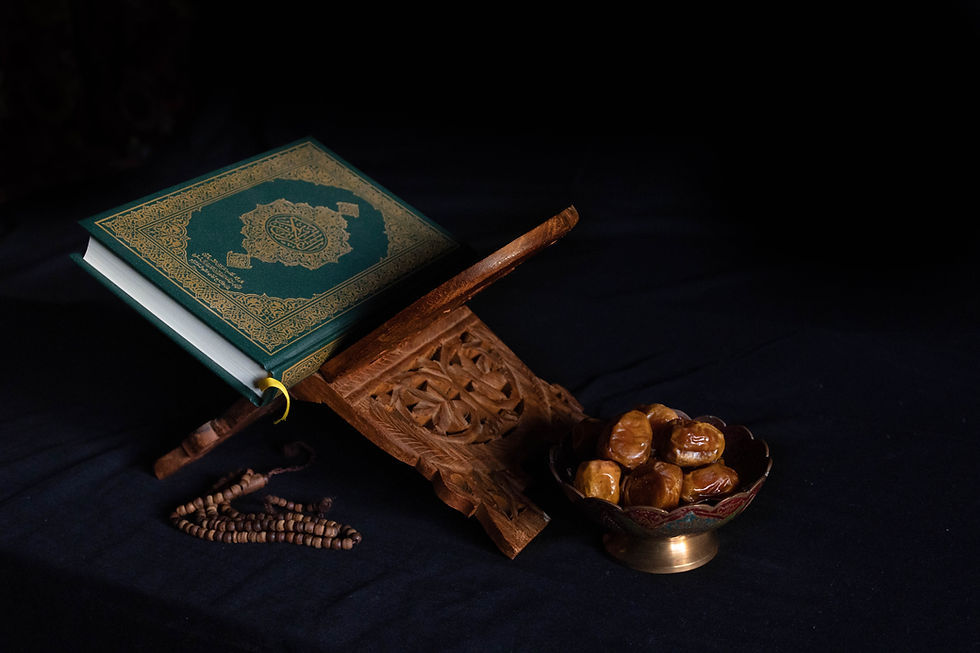The Month of Ramadan
- Gil B
- Feb 16, 2025
- 2 min read

Ramadan is the ninth month in the Islamic calendar. It is the most important month of the islamic year. During this month, every adult Muslim is obligated to fast from sunrise to sunset. The obligation to fast during Ramadan is one of the five main pillars of Islam. Observant Muslims refrain from smoking, engaging in sexual relations, and even celebrating weddings during Ramadan.
Since the Islamic calendar is a lunar calendar, Ramadan shifts back by 11 days each year. If you ask a Muslim during the year when Ramadan will begin, they may estimate a close approximation, but the official announcement of the exact day is only made shortly before the start of the holiday from various sources. One of the most significant and central sources for this announcement is Al-Azhar University in Cairo.
This year (2025) Ramadan starts on the evening of Friday, February 28th lasting 30 days and ending at sundown on Saturday, March 29.
According to the Quran, the verses of the Quran began to be revealed to the Prophet Muhammad during Ramadan, and at the end of the month, the Angel Gabriel appeared to him. Ramadan concludes with Eid al-Fitr, a holiday celebrated for about three days. This holiday is called "the small holiday" (since Islam has only two major holidays) or "the holiday of breaking the fast".
The Similarities Between Islam and Judaism
The similarities between Islam and Judaism are significant. For example:
Both religions prohibit eating pork.
Both forbid the display of statues or idols.
Both religions are based on commandments and obligations.
Another similarity is the belief that through fasting, prayer, and charity, one can atone for sins, improve one's way of life, and embark on a new, righteous path.
However, unlike Judaism—where Yom Kippur is a complete day of rest with strict prohibitions—during the Ramadan fast, Muslims continue to work!
When Ramadan falls in winter and the days are short, fasting and working become easier. However, when it falls in the summer months, fasting and working are much harder and longer.
At nightfall, families gather for Iftar, the meal that breaks the fast. Afterward, men give gifts to all the women in the family. Due to the large number of women in many families, this tradition can become quite expensive.
During Ramadan, it is customary to greet Muslims with "Ramadan Kareem", which means "Have a Blessed Ramadan."

During peaceful years, around 100,000 worshippers pray at Al-Aqsa Mosque every day throughout Ramadan.
For the adventurous among us, it's recommended to stand in one of the main streets of the Old City of Jerusalem and simply watch the stream of worshippers leaving the Temple Mount after prayers. For those who prefer a less crowded experience, standing on one of the rooftops or observation points offers a great view.
Important note:During Ramadan, non-Muslims are not allowed to enter the Temple Mount, and at Israel Explorers, we do not conduct our Temple Mount tours during this time.




Comments